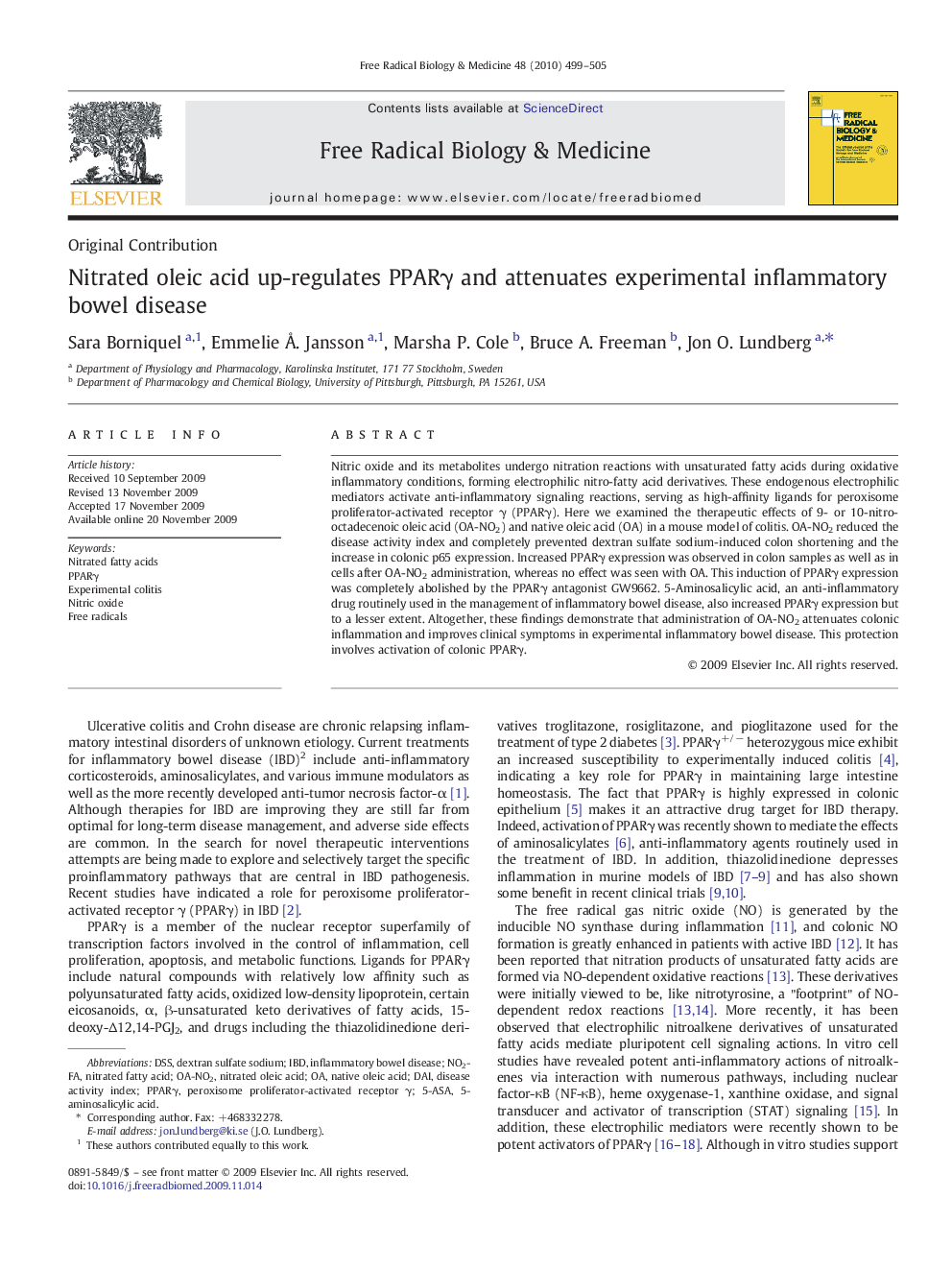| Article ID | Journal | Published Year | Pages | File Type |
|---|---|---|---|---|
| 1910267 | Free Radical Biology and Medicine | 2010 | 7 Pages |
Nitric oxide and its metabolites undergo nitration reactions with unsaturated fatty acids during oxidative inflammatory conditions, forming electrophilic nitro-fatty acid derivatives. These endogenous electrophilic mediators activate anti-inflammatory signaling reactions, serving as high-affinity ligands for peroxisome proliferator-activated receptor γ (PPARγ). Here we examined the therapeutic effects of 9- or 10-nitro-octadecenoic oleic acid (OA-NO2) and native oleic acid (OA) in a mouse model of colitis. OA-NO2 reduced the disease activity index and completely prevented dextran sulfate sodium-induced colon shortening and the increase in colonic p65 expression. Increased PPARγ expression was observed in colon samples as well as in cells after OA-NO2 administration, whereas no effect was seen with OA. This induction of PPARγ expression was completely abolished by the PPARγ antagonist GW9662. 5-Aminosalicylic acid, an anti-inflammatory drug routinely used in the management of inflammatory bowel disease, also increased PPARγ expression but to a lesser extent. Altogether, these findings demonstrate that administration of OA-NO2 attenuates colonic inflammation and improves clinical symptoms in experimental inflammatory bowel disease. This protection involves activation of colonic PPARγ.
